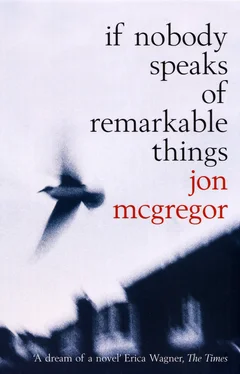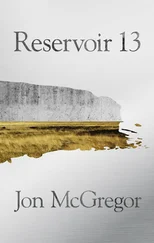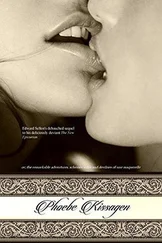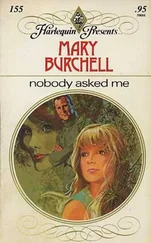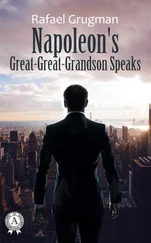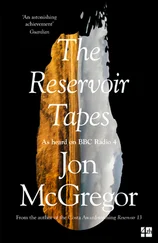Jon McGregor - If Nobody Speaks of Remarkable Things
Здесь есть возможность читать онлайн «Jon McGregor - If Nobody Speaks of Remarkable Things» — ознакомительный отрывок электронной книги совершенно бесплатно, а после прочтения отрывка купить полную версию. В некоторых случаях можно слушать аудио, скачать через торрент в формате fb2 и присутствует краткое содержание. Год выпуска: 2003, Издательство: Bloomsbury Publishing Plc, Жанр: Современная проза, на английском языке. Описание произведения, (предисловие) а так же отзывы посетителей доступны на портале библиотеки ЛибКат.
- Название:If Nobody Speaks of Remarkable Things
- Автор:
- Издательство:Bloomsbury Publishing Plc
- Жанр:
- Год:2003
- ISBN:нет данных
- Рейтинг книги:4 / 5. Голосов: 1
-
Избранное:Добавить в избранное
- Отзывы:
-
Ваша оценка:
- 80
- 1
- 2
- 3
- 4
- 5
If Nobody Speaks of Remarkable Things: краткое содержание, описание и аннотация
Предлагаем к чтению аннотацию, описание, краткое содержание или предисловие (зависит от того, что написал сам автор книги «If Nobody Speaks of Remarkable Things»). Если вы не нашли необходимую информацию о книге — напишите в комментариях, мы постараемся отыскать её.
If Nobody Speaks of Remarkable Things — читать онлайн ознакомительный отрывок
Ниже представлен текст книги, разбитый по страницам. Система сохранения места последней прочитанной страницы, позволяет с удобством читать онлайн бесплатно книгу «If Nobody Speaks of Remarkable Things», без необходимости каждый раз заново искать на чём Вы остановились. Поставьте закладку, и сможете в любой момент перейти на страницу, на которой закончили чтение.
Интервал:
Закладка:
There are photographs on the dresser, amongst the decorative teapots and the royal doulton figurines, a lifestory waltzing across the varnished wood. A wedding photo, framed in carved oak, he in a soldier’s uniform, face shiny and tight and smiling, breast pockets fastened down with rigorously polished buttons, and she tucked into the side of him, the pins in her hair concealed with small white flowers, her dress curving away from her neck and puffing proudly out around her arms.
Another photo, perhaps ten years later, the two of them standing by the sea, somewhere sunny, the sky bright and crisp and he has a handkerchief knotted across his head, the four corners poking up like cloth thumbs, and she has a wide-brimmed straw hat which casts a weave of shadow across her face. There are small boats on the sea behind them, small boats with square red sails and long pointed bows, and there are islands on the horizon, a woman dressed in black in the background, stooping to pick something up off the beach.
There is a larger photo, a wide curve of people standing in a garden, couples with their children, the husband and wife from these other photos standing to one side, smiling as broadly as the rest.
And in smaller pictures, mounted in oval silver frames, the children from that wide photo in the garden grow up, bursting into colour photography, going gap-toothed, long haired, surly, squeezing partners of their own into the pictures, holding scrolls of paper, holding babies.
But mostly there is this husband and wife, in colour photos taken by friends and relatives, or by passers-by on daytrips and holidays. The two of them outside Buckingham Palace. The two of them blowing out candles on a cake. The two of them on a ferry, wind blowing their hair, pointing at the white cliffs of Dover.
On the windowsill, in between the tobyjugs which hide missing buttons and foreign coins, in between the bowls trophies and the decorative egg timers, there is a medal, mounted on a plain white card, propped up against the windowframe. He hadn’t wanted her to put it on display, but she had, and he’d turned away from arguing about it. It’s a plain-looking medal, like a large thick coin, no ribbon, The Defence Medal written on one side and a younglooking King George on the other. She polishes it sometimes, when she thinks he’s not looking. You know it’s nothing that, he said to her once, not so long ago, you shouldn’t shine it up he said. They only gave them out for making it back home he said, and there’s nothing in that worth a medal. She’d looked at him when he’d said that, and he’d left the room. It was the first thing he’d ever said about it.
When he came back to her he knew he would be unable to talk, knew it as soon as he put his hand on the cold metal tailgate of the truck heading home and climbed up into the damp canvas darkness. He could see her face all through that long journey, waiting to hear his stories, wanting to comfort his sadnesses. He could see the expectation she would have in her eyes, not knowing what he would say but knowing that he would surely say something, the same way he’d always told her stories when he’d been away.
But this was different, and perhaps she’d understand. He’d never really been away before, not actually away, he’d only been on training, done exercises, and the stories he’d had to tell were interesting and funny and easy to put into words. Wading through sodden marshland carrying wooden rifles, and his boot had come off and got lost and when he put the rifle down to find it the sergeant had shouted at him for damaging his weapon. Slitting open sandbags with fixed bayonets, the sand spilling onto the ground and the sergeant shouting twist and withdraw, twist and withdraw. Hiding in the forest all night with green makeup on his cheeks, everything silent and black except the red firefly tips of the other men’s cigarettes and in the morning the sergeant had said you would all be dead by now. He’d told her these stories over the long weekends they spent together, short snatches of time they were granted between his long spells of duty. What have you been doing this time she’d say, and he’d tell her about the marches, the assault courses, the shooting practice, the running around in deserted villages commandeered by the government. And she’d take off his jacket and circle her fingers around his arm, testing his muscles, telling him what a strong man he was.
He’d thought about that on the journey home, her squeezing the strength of his arm like that, and he’d thought about how much bigger his arms had got while he’d been away, how she wouldn’t be able to circle her small hands round his muscle anymore and whether that would make him feel strange to her. There would be nothing else to make him feel strange to her, he’d thought, he had no wounds, no broken bones, no scars or missing limbs. Just very strong arms, and a new quietness.
He’d worried about going back, all the way he’d worried, wondered how she would be, if she would still be there, if things could be as they were before, if they could get on now with making the home they’d been kept from making, and then she’d stood behind him in the rain and said there’s no need to shout I’m right behind you and he’d known that things would be okay.
They’d talked a lot about making a home, before he’d gone away, during those weekends, talked about where they might live and what they might do, names they might give to their children, furniture they might buy, or make, or inherit. I’d really like a Welsh dresser she’d say, her fingers tracing absent-minded outlines across the bones of his face, I’ve always wanted one, with the plates all lined up nicely, and he’d said yes that would be nice and had to ask someone later what a Welsh dresser might be.
In the entranceway of their small flat, their home all these long years, in a small cupboard where the coats and hats and shoes should be, there are gardening tools, a spade, a fork, a hoe, a small trowel, a reel of twine, paper bags full of seed packets and bulbs, an unruly coil of hosepipe. She used to keep all the tools in a small shed on the allotment, but they were stolen so many times that she’s taken to wheeling them backwards and forwards in a tartan shopping trolley. She doesn’t grow as much as she used to, she gets more tired more quickly, so now she’s planted half the allotment with bulbs. It’s nice to sit amongst the flowers when she’s having a rest, and sometimes in the spring she’ll bring a bunch of them home, put them in a vase. It brightens the place up she says and he says yes love it does, thankyou love, and he puts the kettle on and cuts her a slice of cake whenever she comes home from her patch of ground, and she drinks the tea with soil-blackened fingers, eats the cake with a napkin wrapped round it. He never goes to the allotment, he says I don’t much like all that gardening, he said I never have done love, when she first got it from the council, he said it’s the digging love, I can’t be doing with all the digging.
So he lets her go up there on her own, watching her pulling the tartan shopping trolley with the spade sticking out from the top, and when he hears her returning he puts the kettle on and she puts the things away in the small cupboard by the door.
Downstairs, the man with the carefully trimmed moustache is on the telephone again, leaving another message with the waste department of the local council. He says hello, it is me again, I telephoned earlier about the removal situation in my backyard, okay. He says I just want you to note that last time you wrote to me my name was spelt incorrectly, because you used an S and not a Z. This is close, but it is not close enough, he says. These things are important, the way you spell a man’s name, it matters, yes? he says, and he puts the phone down. He looks around him, drumming his fingers against his trousers, anxious or agitated or just at a loss as to what to do next. He will be attending a fundraising event at the club later in the day, but before then he has no plans and he doesn’t enjoy having no plans.
Читать дальшеИнтервал:
Закладка:
Похожие книги на «If Nobody Speaks of Remarkable Things»
Представляем Вашему вниманию похожие книги на «If Nobody Speaks of Remarkable Things» списком для выбора. Мы отобрали схожую по названию и смыслу литературу в надежде предоставить читателям больше вариантов отыскать новые, интересные, ещё непрочитанные произведения.
Обсуждение, отзывы о книге «If Nobody Speaks of Remarkable Things» и просто собственные мнения читателей. Оставьте ваши комментарии, напишите, что Вы думаете о произведении, его смысле или главных героях. Укажите что конкретно понравилось, а что нет, и почему Вы так считаете.
